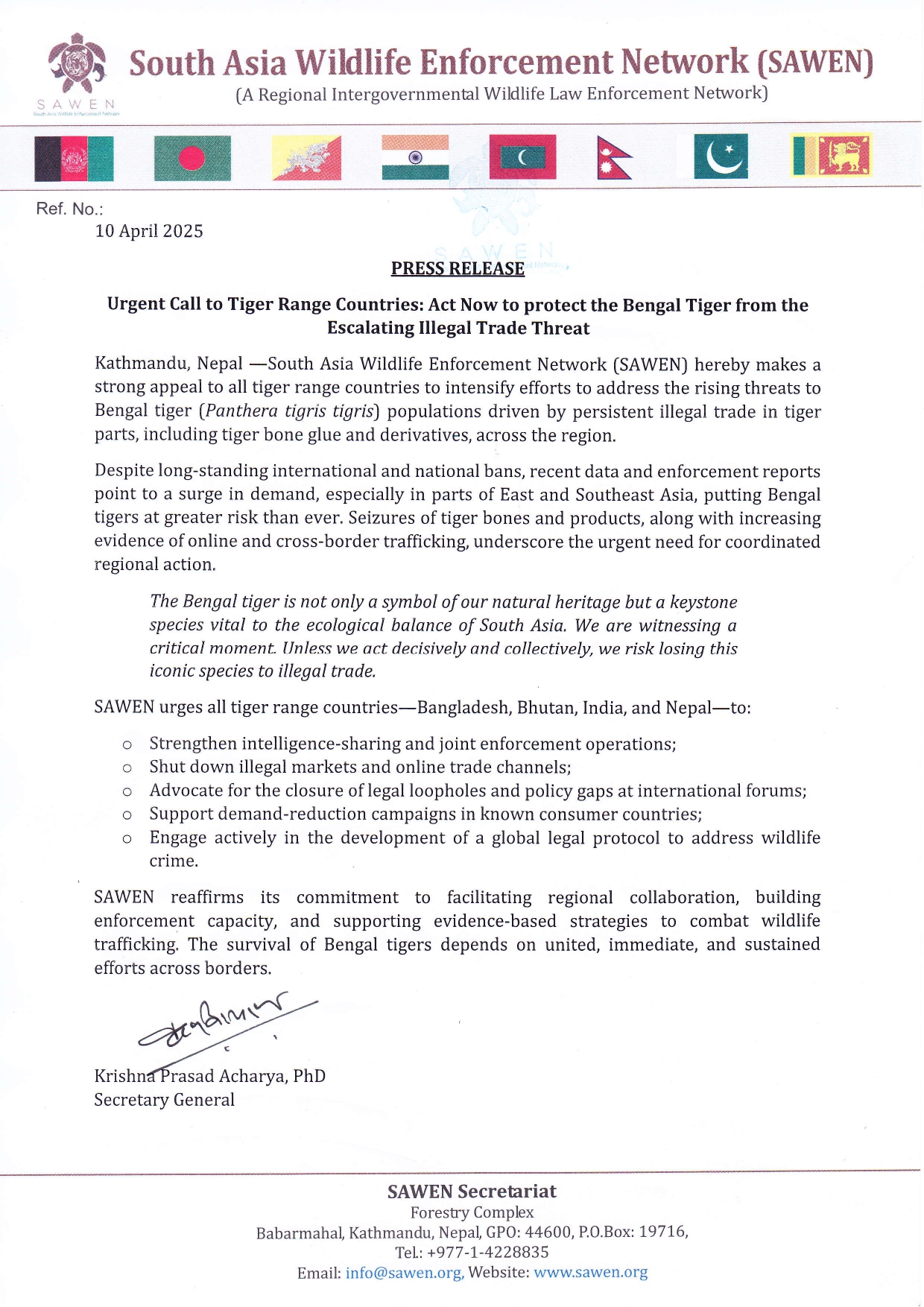Urgent Call to Tiger Range Countries

Kathmandu, Nepal —South Asia Wildlife Enforcement Network (SAWEN) hereby makes a strong appeal to all tiger range countries to intensify efforts to address the rising threats to Bengal tiger (Panthera tigris tigris) populations driven by persistent illegal trade in tiger parts, including tiger bone glue and derivatives, across the region.
Despite long-standing international and national bans, recent data and enforcement reports point to a surge in demand, especially in parts of East and Southeast Asia, putting Bengal tigers at greater risk than ever. Seizures of tiger bones and products, along with increasing evidence of online and cross-border trafficking, underscore the urgent need for coordinated regional action.
The Bengal tiger is not only a symbol of our natural heritage but a keystone species vital to the ecological balance of South Asia. We are witnessing a critical moment. Unless we act decisively and collectively, we risk losing this iconic species to illegal trade.
SAWEN urges all tiger range countries—Bangladesh, Bhutan, India, and Nepal—to:
- Strengthen intelligence-sharing and joint enforcement operations;
- Shut down illegal markets and online trade channels;
- Advocate for the closure of legal loopholes and policy gaps at international forums;
- Support demand-reduction campaigns in known consumer countries;
- Engage actively in the development of a global legal protocol to address wildlife crime.
SAWEN reaffirms its commitment to facilitating regional collaboration, building enforcement capacity, and supporting evidence-based strategies to combat wildlife trafficking. The survival of Bengal tigers depends on united, immediate, and sustained efforts across borders.


